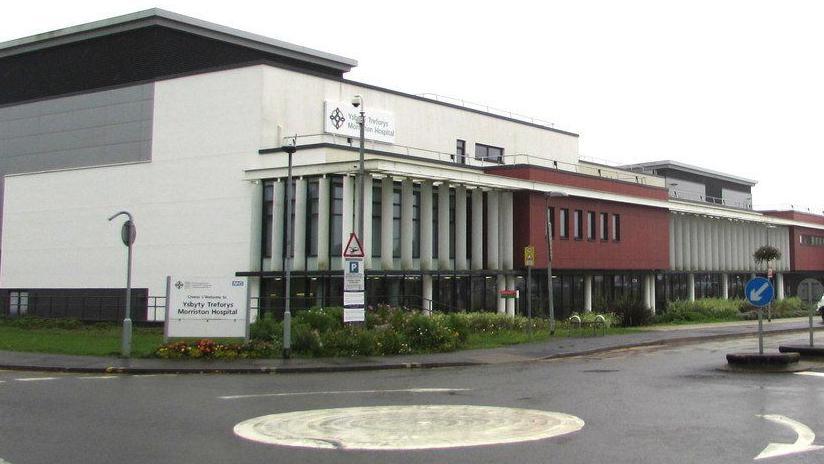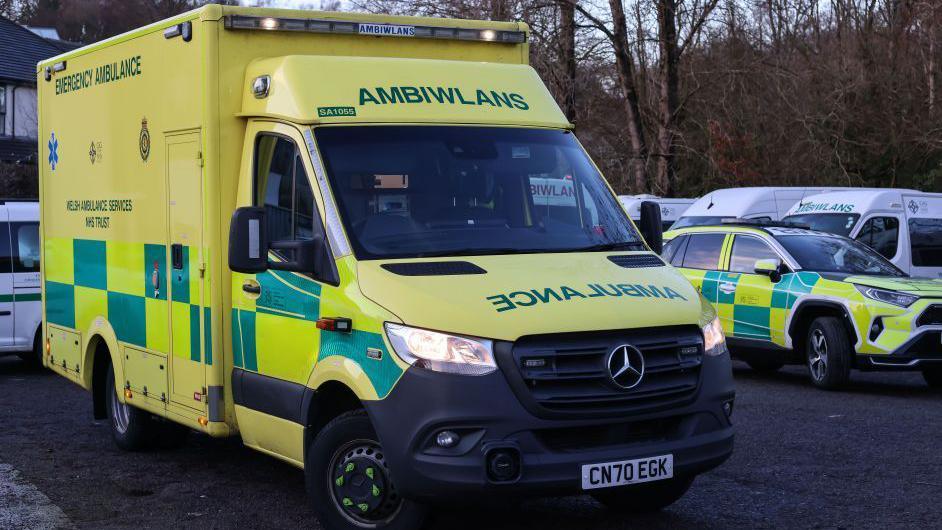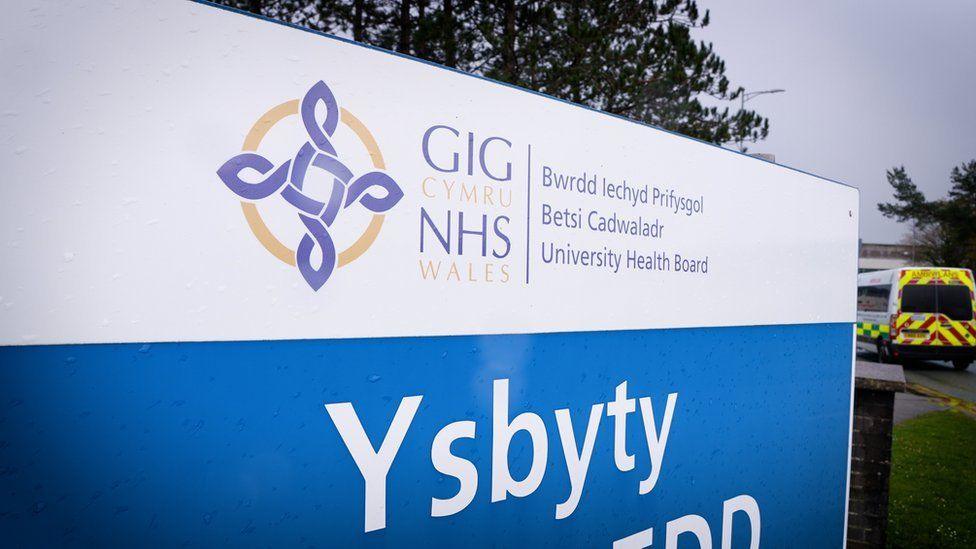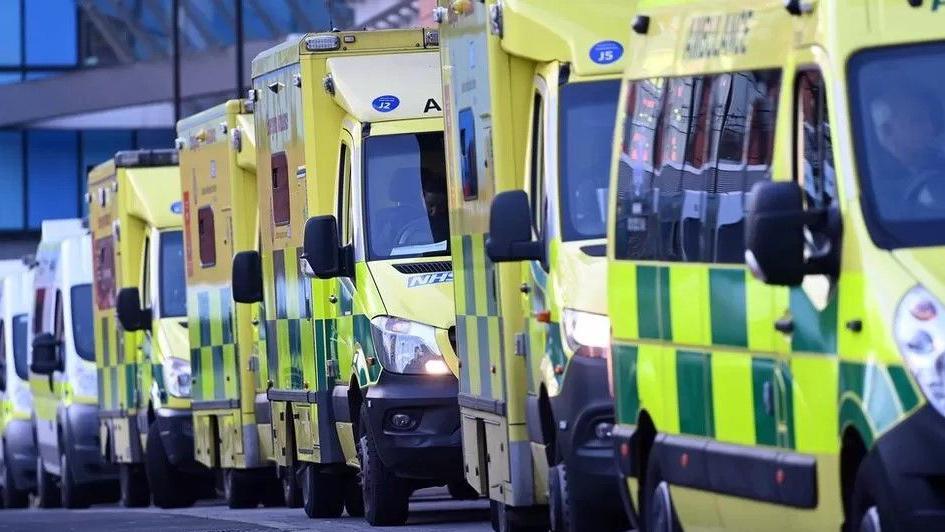Cancer patient died after delays to treatment - coroner

Mr Tatchell was referred to Morriston Hospital by his dentist following the discovery of an ulcer in his lower left jaw
- Published
A coroner has written to a health board after delays to a cancer patient's treatment breached the Suspected Cancer Pathway time limit twice.
Gareth Wynne Tatchell died on 9 April 2024 at Princess of Wales Hospital in Bridgend.
An inquest into Mr Tatchell's death found he died from the natural cause of pneumonia having undergone treatment for squamous cell carcinoma, external which had returned at the time of death.
However, Coroner Aled Gruffydd is calling for answers about delays to staging and the treatment phase of his care.
My eye-opening day at overrun A&E department
- Published23 January
Hospital waiting times improve for second month
- Published20 March
Treatment in corridors becoming the norm - nurses
- Published16 January
In a Prevention of Future Death's, external report, Coroner Aled Gruffydd said that the "delay in providing treatment more than minimally contributed" to his death.
The coroner was told Mr Tatchell was referred to Morriston Hospital on 12 April 2023 by his dentist following the discovery of an ulcer in the lower left jaw.
The referral was classed as an urgent suspected cancer (USC) and he was seen at the outpatients clinic on 28 April 2023.
It was suspected he had a squamous cell carcinoma but it needed to be confirmed by a biopsy, which took place on 18 May 2023, with the results returning on 30 May as a moderately differentiated squamous cell carcinoma.
Mr Tatchell returned to hospital again on 19 and 29 June for CT and MRI scans. His care was transferred when he saw a consultant on 6 July and 27 July to discuss treatments, which would consist of surgery and radiotherapy.
However due to theatre capacity he did not undergo surgery until 13 September.
The week prior to the surgery, it was discovered Mr Tatchell's cancer had spread and was visible.
The area was operated on but by February 2024 and with Mr Tatchell complaining of pain in his neck, specialists found the cancer had returned.
He was readmitted to hospital on 8 March and subsequently died one month later.
Writing to the chief executive of Swansea Bay health board, Mr Gruffydd concluded that "the delay in providing treatment more than minimally contributed to the deceased's death".
The Suspected Cancer Pathway, introduced in Wales in 2019, required a suspected cancer to be diagnosed and staged within 31 calendar days of the date of referral.
It also states that for treatment to commence within 62 calendar days from the date of referral.
"In this case the diagnostic and staging phase was completed in 97 days from the date of referral and treatment commenced within 144 days of the date of treatment."
Mr Gruffydd said that since then there had been evidence of improvement in theatre capacity and the addition of a consultant maxillofacial oncological surgeon appointed.
However, he added that in May 2025, two associate medical directors expressed concern to the clinical lead for radiology that delays to staging scans were causing unnecessary risk in aggressive cancers that were at risk of progression and unresectable.
Mr Gruffydd said he was concerned that delays in staging scans were allowing such cancers to progress to the point that they are "unresectable, resulting in poor prognosis for patients and reducing survivability rates and life expectancy".
The health board offered "condolences to Mr Tatchell's family for their sad loss" and apologised for the "delays in his care".
"We will now carefully consider all the issues raised and respond directly to the coroner in due course."
Related topics
- Published24 June

- Published22 March 2024

- Published24 July
